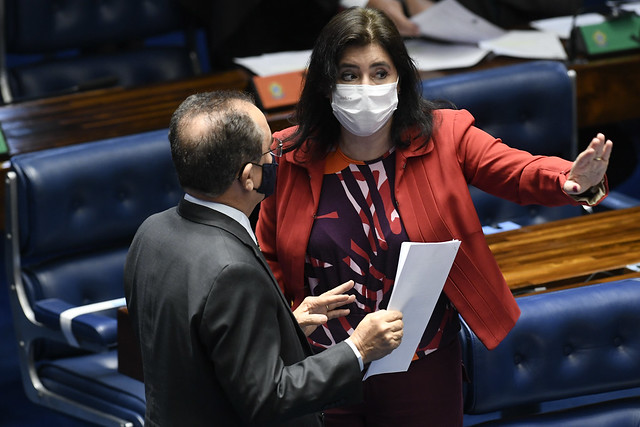The Senate rejected a plan to reinstate party coalitions for proportional elections, which had been previously approved by the lower house.
The draft passed in the House essentially voided electoral thresholds for parties to benefit from public funding. Brought in in 2017, the rule set a minimum percentage of votes parties had to win in order to continue receiving money from the federally-financed party fund. On Wednesday, the Senate upheld the following requirements:
- At least 2 percent of total votes for lower house seats across the entire country in 2022. That minimum percentage will increase to 2.5 and 3 percent in 2026 and 2030;
- At least 1 percent of the votes for lower house seats in at least nine states in 2022 — then 1.5 and 2 percent in 2026 and 2030.
If the rules were enforced in 2018, 14 of Brazil’s 33 political parties would not have cleared the threshold.
Until March 2022 — before which candidates must choose their parties, as independent candidacies are not allowed — the reshuffling of party rosters will remain busy. However, the biggest move has yet to be made, as President Jair Bolsonaro is still without a party.


 Search
Search






































